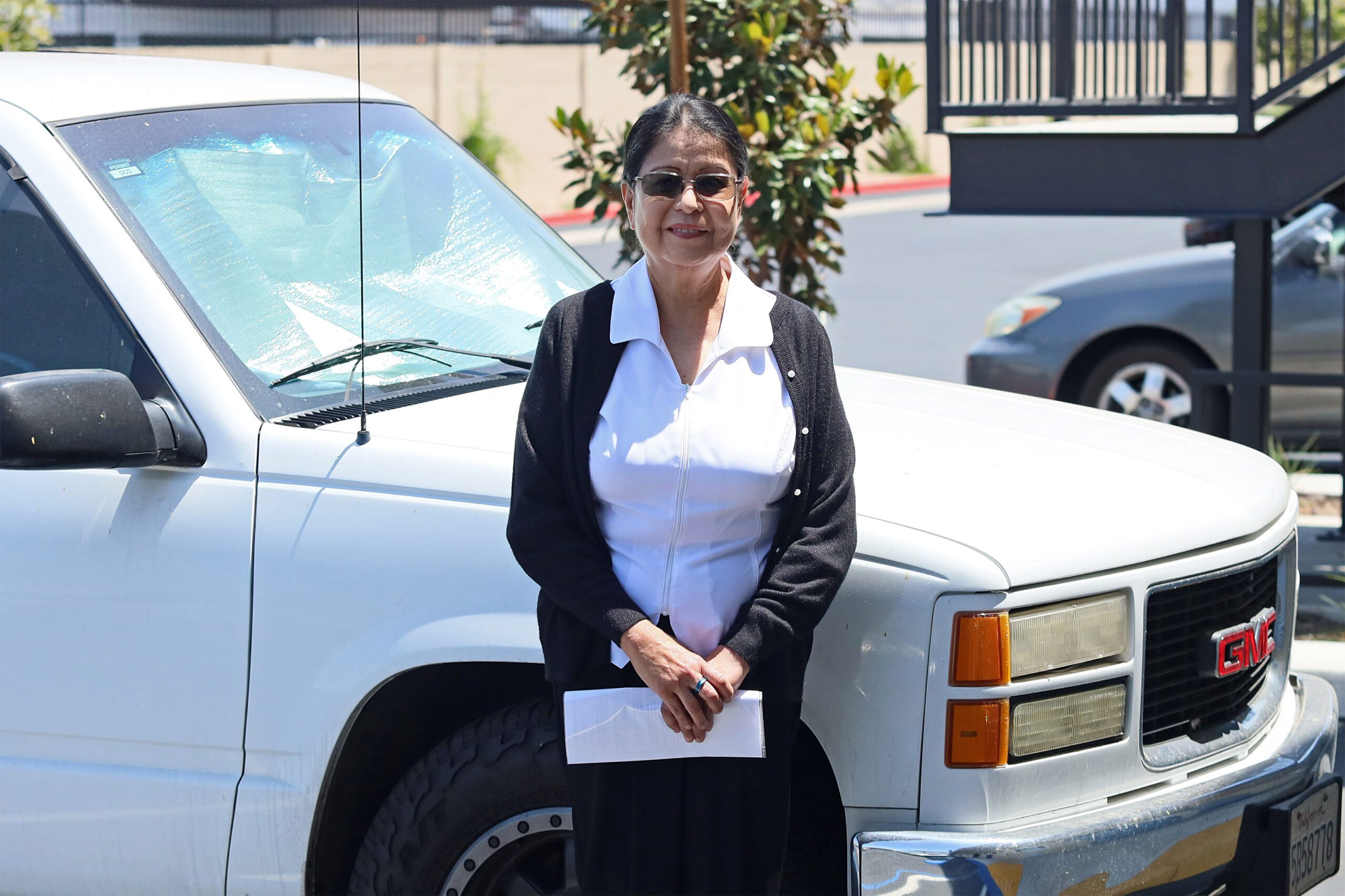Everyone comes to a point in time where their health goals feel out of reach. Whether it's relying on one too many takeout orders, not feeling confident in your skin, or a less-than-ideal recent lab workup at the doctor's office. There may be a time (or several) when you need to recalibrate your health and could benefit from some external motivation or guidance. Enter: wellness coaches.
Health and wellness coaches help you reach your health goals, feel your best, and act as your personal cheerleader. Whether you're interested in fulfilling a career as a wellness coach or are considering working with one, get to know what health and wellness coaches do, how to become a wellness coach, and what makes a great one.
What is a wellness coach?
Health Coach Certification
A best-in-class, board certified curriculum grounded in a holistic approach to healing.
 Learn More
Learn More The National Board Certified Health and Wellness Coaches "help you find your 'why,' that intrinsic motivation, and of course have the education to help you understand common diagnoses and make the change necessary to improve your health," says Dana Bufalino, NBC-HWC, a Charleston-based health and wellness coach. This most often focuses on four pillars of health and wellness: nutrition, sleep optimization, stress management, and movement, she adds.
If you're curious about the terms "health coach," "wellness coach," and "health and wellness coach," while the titles may vary based on the certifying organization, they're often used synonymously, and all coaches have the same purpose in mind: to use the science of behavior change and their knowledge of key areas of wellness to help clients reach their health goals.
Advertisement This ad is displayed using third party content and we do not control its accessibility features.What do wellness coaches do?
Wellness coaches focus on nutrition, movement, stress management, and sleep with their clients, but it can vary based on the client's goals. "One thing many people I've worked with have in common is that they have a goal—they want to feel better in some way—but they are having a hard time getting started," explains Jessica Cording, M.S., R.D., CDN, INHC, a New York–based dietitian and health coach. "Or, they feel like they've tried everything but it's 'not working' and they need help with motivation or getting set up with an individualized plan that is going to help them start to move toward their goal.”
Cording says weight management, stress and anxiety management through lifestyle approaches, and sleep issues are all common areas where clients require assistance. It's also common for people to come to a wellness coach if they have a stubborn, underlying issue they're struggling to treat, like migraines, fertility challenges, PCOS, or anxiety, says Bufalino. New diagnoses from a doctor, like prediabetes, gestational diabetes, high cholesterol, or high blood pressure are also areas where wellness coaches can offer support with lifestyle recommendations.
So what exactly does this mean? As a coach, you may be helping a new mom come up with quick, nourishing meals to fuel her while breastfeeding and get her back into some sort of movement routine. You might be helping a person who just learned they have diabetes choose the best low-glycemic foods and manage weight. Or you could be working with a busy professional to help lower their stress levels through a meditation practice and exercise, so they can get better sleep.
A day in the life of a wellness coach.
A typical day for a wellness coach will depend on their exact scope and working environment. Bufalino, who owns her own coaching business, sees two to five clients per day virtually, with 30 or 60-minute appointments. She sets her hours to 7:30 a.m. to 2:30 p.m., giving her the flexibility to pick up her toddler and spend time with him in the afternoon. "I wouldn't change that flexibility for the world. It also aligns with my working archetype. I'm sharpest and most productive in the morning," she says.
Cording, who currently works as part of a health care system supporting breast cancer patients and also sees clients as part of her own business, emphasizes that there is a lot more work involved in being a coach than just the time seeing clients. You're also prepping before visits by reading up on the notes you took, you're documenting what you talked about after the appointment, you're taking care of administrative work, and you're spending time keeping up on the latest in health and wellness information to better serve your clients.
Because of the demanding nature of the job, self-care is important, says Cording. "One thing I had to learn was to set boundaries with my time and be very thoughtful about not overbooking myself." To avoid burnout, Cording implements some small form of self-care before the day begins. "For me that's exercise in the morning, eating a balanced meal, and every day before I see patients I always do a quick meditation and energy clearing. I do that at the end of my workday, too."
Advertisement This ad is displayed using third party content and we do not control its accessibility features.How to become a wellness coach.
There's no single "right" route to becoming a health and wellness coach. "It will depend on the organization or the capacity in which you want to work," explains Cording. Certain jobs may want you to have a specific certification, or even an additional degree in nutrition, physical therapy, exercise physiology, therapy, or medicine.
Health Coach Certification
A best-in-class, board certified curriculum grounded in a holistic approach to healing.
 Learn More
Learn More First, you'll want to choose a program that aligns with your goals and interests. "There are a few different nationally recognized certifications. You do have to take an exam for some of them to get the certification," says Cording.
When searching for a coaching program, look for one approved by the National Board of Health and Wellness Coaching (NBHWC, a partner of the National Board of Medical Examiners), so you can sit for the exam afterward. Other certifying bodies include the National Commission for Certifying Agencies and the Health Coach Alliance.
Advertisement This ad is displayed using third party content and we do not control its accessibility features.Wellness coach jobs.
If you decide to become a wellness coach, you're in luck. "There are more and more jobs for health and wellness coaches," shares Bufalino. "The pandemic has really proven the power in preventive health."
A focus on preventive health is largely new for the U.S. health care system, and multiple industries are leaping at the opportunity to bring on coaching pros. "A lot of hospitals and doctor's offices are hiring health and wellness coaches to help implement patients' necessary nutrition and lifestyle changes," says Bufalino. In this setting, the coaches will complement other services or providers, such as a doctor or nurse, to ensure their recommendations are met.
Additionally, many telehealth companies that offer services focused on preventive health, weight management, and nutrition are also hiring health coaches.
Of course, if you prefer to start your own business, there is opportunity to work as a freelance wellness coach and take private clients, consult, and focus on content creation.
What to look for in a wellness coach
If you're looking to work with a wellness coach, there are a few things that can help you determine the best one for you. First, check to see that they are board-certified or have completed a wellness coaching program. Then, check out their background. Do they have experience in an area that's of interest to you? (Think: Working at a fertility clinic, with people on a weight management journey, or in a corporate setting?)
Also look for testimonials from former clients and check out their social media profiles. Some coaches will offer free discovery calls so you can determine whether it's a good fit.
And the top red flag to look out for? "If you see someone promoting a one-size-fits-all approach or says that their way is the only way, that's a red flag," says Bufalino. "A good wellness coach is someone who will emphasize meeting their client where they're at and will take into account their individual needs and will support and guide them."
Advertisement This ad is displayed using third party content and we do not control its accessibility features.The takeaway.
Entering into the world of health and wellness coaching is an exciting and fulfilling career that only stands to grow as more people focus on their wellness. As Bufalino puts it, "The satisfaction at the end of the day, having helped people create positive change in their health, is incredible."
Advertisement This ad is displayed using third party content and we do not control its accessibility features.Original Article










